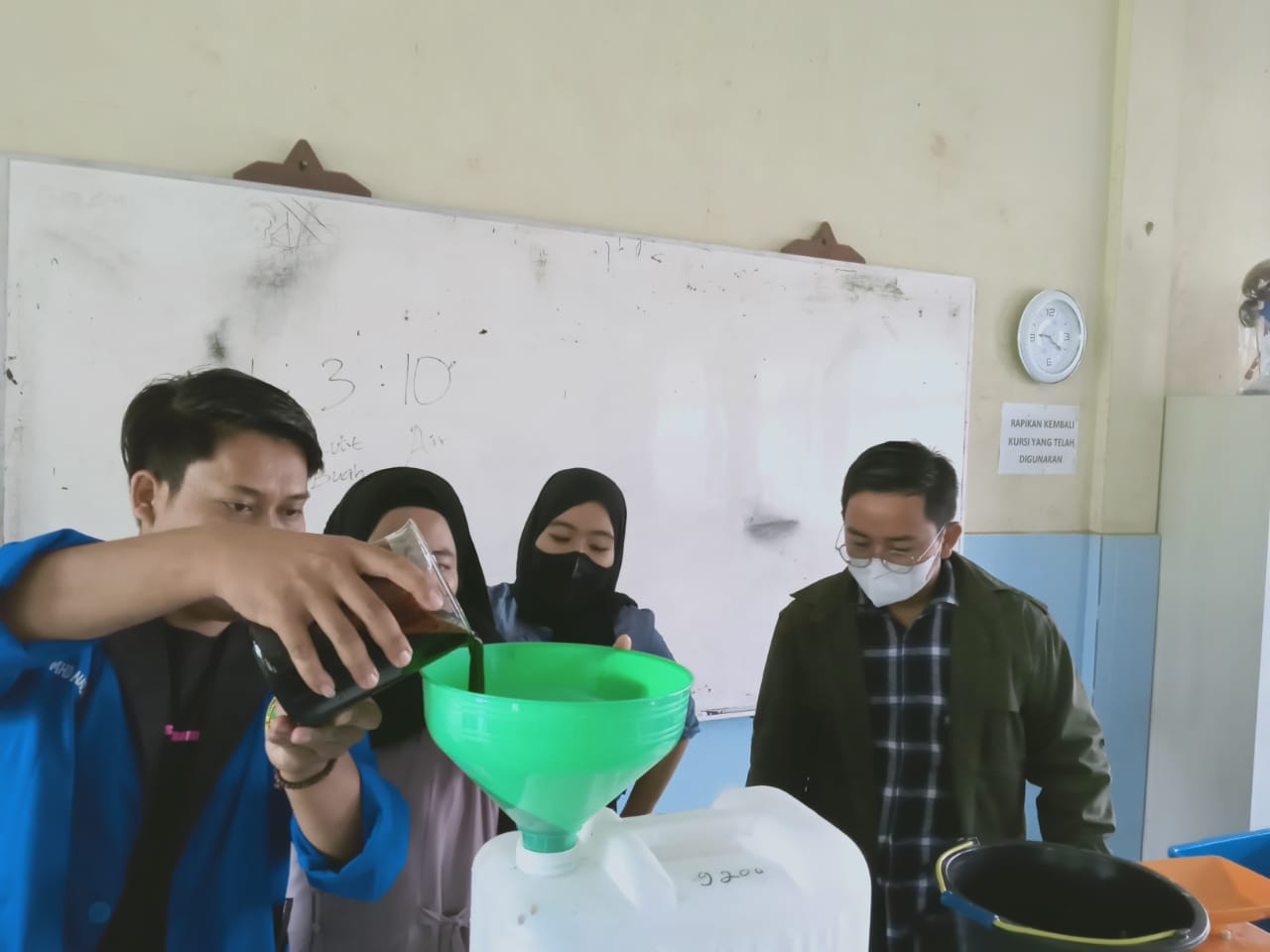The Conservation and Biological Resources Study Centre: A Training on Producing Eco-enzyme to Students of UIN Sulthan Thaha Saifuddin Jambi.

The Conservation and Biological Resources Study Centre (KSDH) provided a training on producing Eco-enzyme to students with a theme, eco-enzyme for Green Campus. This training was a collaboration activity between the KSDH Study Centre, the Environmental Study Centre, Students Association of Educational Biology, and Green Sutha Ambassador. The training was held at Science Integrated Laboratory in UIN Sulthan Thaha Saifuddin Jambi (27/06/2022). This training was followed by 20 students from several study programs considering the limited laboratory capacity that was led by three trainers from the two study centres, Bayu Kurninawan, S.S., M.Sc., Aini Qomariah Manurung, M.Si., and Syukrya Ningsih, M.Si. As what Bayu Kurniawan has delivered as the KSDH Study Centre, Eco-enzyme is one of better alternatives in utilizing the organic waste to reduce the accumulated waste production in the ecosystem. The application of the Reuse, Reduce, and Recycle waste system is a support for environmental conservation as well as in the manufacture of eco-enzymes through the fermentation process of organic materials such as fruit or fruit peels and vegetables that have not been previously heated. The production of eco-enzymes is expected to be a solution and greatly contribute to the reduction of waste which directly disposed on the landfill or ecosystem. Eco-Enzyme is a multifunctional solution produced by fermentation for 3 months or 100 days with a successive ratio of 10:3:1, consist of organic materials (fruit or fruit peels and or vegetables); molasses or brown sugar; and water. The practice of making this Eco-Enzyme used waste from pineapple skins that was obtained from around the campus environment. After 100 days of fermentation, the eco-enzyme can be harvested by filtering and separating the fruit skin and the eco-enzyme liquid. The results of filtering the remaining fruit skins that are not completely degraded can be used again as a booster in the manufacture of compost. Aini Qomariah Manurung as Secretary of the Conservation and Biological Resources Study Centre also said that the implementation of this activity is very important and has the aim of educating students about the importance of protecting the environment from various pollutants such as waste and programs to support Green Campus as a locomotive for social change, given the increasing human population growth will also be accompanied by the production of waste. The increasing waste production must be accompanied by good waste management through segregation of organic and inorganic waste before it is disposed of directly into the ecosystem. Cutting the distribution of waste to landfill is an efficient way of processing waste into products which are economically valuable. Good practices need to be pursued in the management of waste that is separated organic and inorganic from the household scale. Syukrya Ningsih (chairperson of the Environmental Study Centre) said that campus waste management is important in supporting the UI GreenMetric World University Rankings on waste management indicators in universities. This indicator is important to be disseminated to the entire academic community that waste management is very important in supporting the achievement of the 17 goals of the Sustainable Development Goals (SDGs) indicator. Eco-enzyme is a broad-spectrum multifunctional liquid that can be used for various needs in the field, such as Agriculture, Livestock, Household, Office etc. The use of eco-enzyme to make it more useful can be diluted first according to the needs and functions because Eco-Enzyme is acidic.




